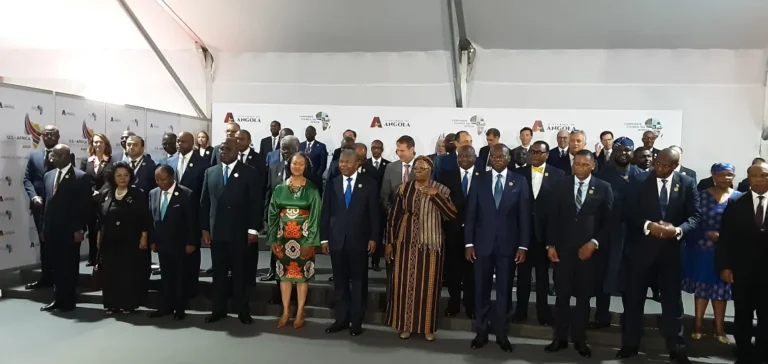On the sidelines of the 17th US–Africa Business Summit in Luanda, Algeria and Angola have decided to enhance their cooperation in the oil and gas sector. Mohamed Arkab, Algerian Minister of Energy and Mines, and Diamantino Azevedo, Angolan Minister of Mineral Resources, Petroleum and Gas, agreed on several strategic aspects, including the exchange of technical expertise, professional training, and joint studies on energy projects.
Strategic diversification of both countries
This initiative marks a new step in the strategic diversification pursued by the two African states. Since leaving the Organization of Petroleum Exporting Countries (OPEC) in January 2024, Angola has actively broadened its international partnerships. Luanda notably focuses on offshore projects to maintain its production levels and attract foreign direct investments.
Simultaneously, Algeria continues to promote its hydrocarbon resources to foreign investors through the Agence pour la valorisation des ressources en hydrocarbure (ALNAFT). Algiers is also highly active within the Gas Exporting Countries Forum (GECF), highlighting its expertise in refining and gas production.
A reinforced institutional framework
Discussions held during the summit foresee mutual visits between Angolan and Algerian experts to precisely identify concrete cooperation opportunities. According to local press reports, these bilateral activities will be supported by rigorous institutional monitoring to ensure effective implementation of signed agreements.
This rapprochement between Algiers and Luanda is part of a broader dynamic of intra-African cooperation, complementing existing regional initiatives such as those driven by the African Petroleum Producers’ Organization (APPO). Recently, APPO launched the African Energy Bank to support energy infrastructure on the continent.
An alignment with continental policies
This cooperation also occurs in the broader context of African economic integration, particularly through the African Continental Free Trade Area (AfCFTA). This framework, aiming to facilitate economic exchanges between member states, encourages such direct partnerships to structure key sectors on the continent.
The joint Algeria–Angola initiative confirms a common willingness among African countries to reposition their economies internationally through precise bilateral cooperation tailored to their respective national challenges. This type of agreement should be closely monitored by international and regional energy stakeholders.






















